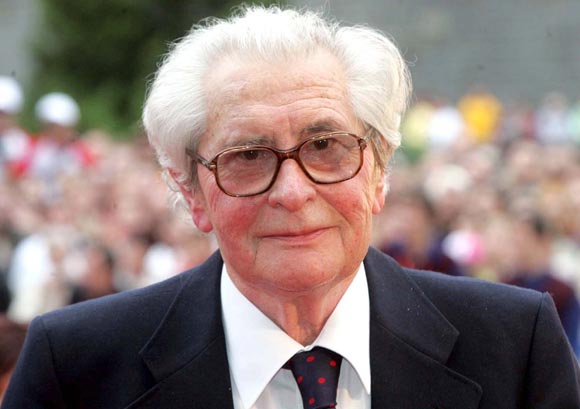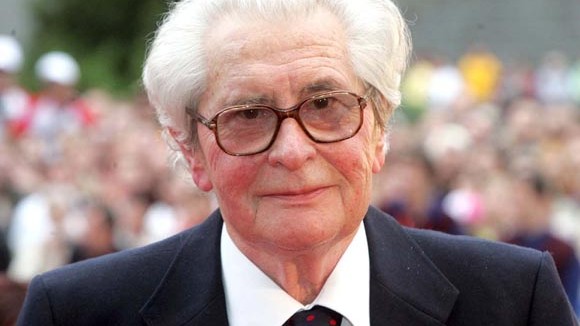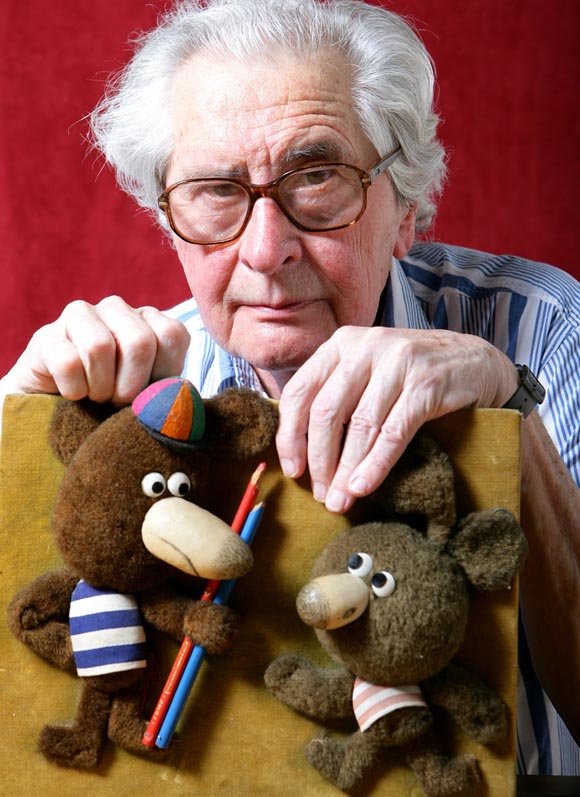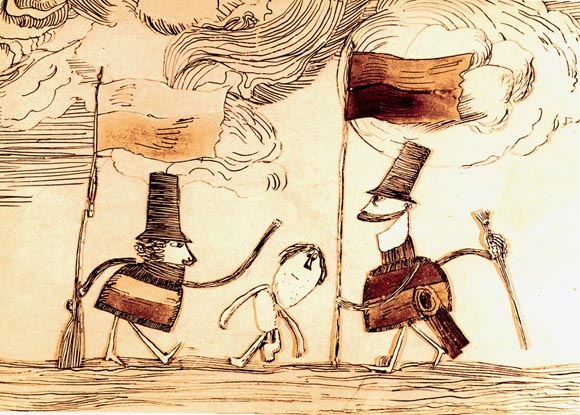

Czech Animation Legend Břetislav Pojar Dies at 89

One of the giants of 20th century animation, Czech animator and director Břetislav Pojar, died last Friday evening [link to story in Czech newspaper]. He was 89. After studying architecture in college, Pojar started his animation career in the early-1940s. He was among the first group of artists to work at the state-run Studio Bratri v triku in Prague. There, he met Jiří Trnka, and in the mid-1940s, he left with Trnka to start a new animation studio. Pojar became Trnka’s key animator on numerous puppet shorts in the late-1940s and early-1950s, including Story of the Bass Cello, The Emperor’s Nightingale, and Old Czech Legends. Even after Pojar became a director, he continued to animate on Trnka’s later films like A Midsummer Night’s Dream.
Pojar began directing his own films with the 1951 short Gingerbread House (Pernikova chaloupka). Among Pojar’s first important films was the anti-drinking short A Drop Too Much (O sklenicku víc. The film is a mixed bag: “Today’s viewer might find [it] melodramatic and artificial,” says historian Giannalberto Bendazzi, but he also praises “a rare cleverness in its camera movements, expressionist illumination and visual invention.”
Pojar’s 1959 short The Lion and the Song (Lev a písnicka) is an allegorical tale about the struggle of art against power. The short won the top prize at the very first Annecy animation festival held in 1960.
The films by Pojar are not easily classifiable and represent one of the most diverse bodies of work by an animation director. He worked in stop motion and drawn animation, and his films tackled a wide range of eclectic themes, often revolving around political, humanistic, social and anti-war concerns.
Pojar’s films also displayed a sophisticated sense of comedy and humor. His most beloved work is the 1960s children’s series Hey Mister Let’s Play. The shorts, which were featured years ago on Cartoon Brew, have a freshness and playfulness that sets them apart as some of the most brilliant children’s animation ever produced.
Even when tackling serious ideas like intolerance, as in the NFB short Balablok, Pojar did it with style and humor.
Pojar was active until the very end. He continued to direct well into the new century, and at the time of his death, Pojar was the head of the animation department at FAMU (Film and TV School of Academy of Performing Arts) in Prague.
To learn more about Pojar’s work in English, I recommend this essay written by Zdena Škapová.




.png)